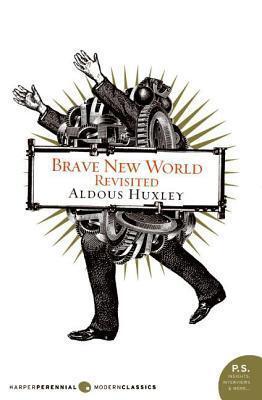
Brave New World: Revisited
작성자
Aldous Huxley
아직 평점이 없습니다
형식
페이퍼백
페이지
123
언어
영어
출판됨
Sep 5, 2006
출판사
Harper Perennial Modern Classics
ISBN-10
0060898526
ISBN-13
9780060898526
설명
In this compelling revisitation of his iconic work, Aldous Huxley offers readers a critical examination of the societal and scientific trends that emerged since the original publication of his novel. Through a series of essays, he reflects on the implications of technological advancements and the growing power of government in shaping human behavior. Huxley presents a thought-provoking inquiry into the ramifications of a world increasingly reliant on artificial comforts and the dangers of relinquishing personal freedoms in favor of stability.
Huxley delves into the consequences of consumerism, exploring how it can lead to a form of social control that diminishes individuality and critical thought. He questions the morality of sacrificing genuine human experiences for the sake of ease and entertainment. As he grapples with the prophetic qualities of his earlier writing, he remains acutely aware of the fine line between utopia and dystopia.
This exploration serves as both a warning and a call to action, urging readers to reflect on the direction of contemporary society. Huxley’s keen observations challenge their perceptions of progress and provoke deep consideration of what it means to be human in an age of rapid change. He implores the audience to recognize the importance of questioning authority and valuing authentic emotional connections.
Ultimately, this work stands as a significant companion to its predecessor, reminding readers that the issues Huxley raised still resonate today. His insights serve as a necessary discourse on freedom, morality, and the essence of humanity in a world that continually teeters on the edge of artificiality.
Huxley delves into the consequences of consumerism, exploring how it can lead to a form of social control that diminishes individuality and critical thought. He questions the morality of sacrificing genuine human experiences for the sake of ease and entertainment. As he grapples with the prophetic qualities of his earlier writing, he remains acutely aware of the fine line between utopia and dystopia.
This exploration serves as both a warning and a call to action, urging readers to reflect on the direction of contemporary society. Huxley’s keen observations challenge their perceptions of progress and provoke deep consideration of what it means to be human in an age of rapid change. He implores the audience to recognize the importance of questioning authority and valuing authentic emotional connections.
Ultimately, this work stands as a significant companion to its predecessor, reminding readers that the issues Huxley raised still resonate today. His insights serve as a necessary discourse on freedom, morality, and the essence of humanity in a world that continually teeters on the edge of artificiality.